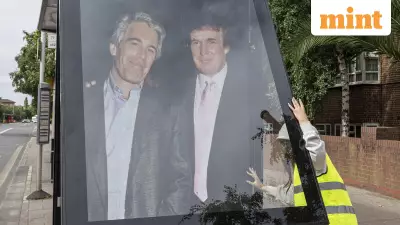
Federal Immigration Crackdown Reaches Charlotte
A fresh contingent of federal agents made their way to Charlotte, North Carolina, this Saturday, marking another phase in President Donald Trump's aggressive immigration enforcement initiative. This deployment represents the administration's continued effort to execute large-scale arrests in cities governed by Democratic leadership.
Department of Homeland Security spokeswoman Tricia McLaughlin confirmed the operation in an official statement, declaring, "We are surging DHS law enforcement to Charlotte to ensure Americans are safe and public safety threats are removed." However, McLaughlin withheld specific details regarding the number of officers involved or their precise operational duties.
Expanding Operation Across Democratic Strongholds
Charlotte becomes the latest addition to a growing list of left-leaning urban centers targeted by this federal campaign. Since summer began, Trump has dispatched federal personnel to Washington, DC, Chicago, Los Angeles, and Portland, consistently arguing that local authorities in these areas have failed to adequately address crime and immigration control.
The city attracted federal attention following a tragic incident in August when a Ukrainian refugee was fatally stabbed while riding a light-rail train. Although the suspect in this killing is actually a US citizen, President Trump has repeatedly referenced the case as evidence supporting his claims of deteriorating public safety in urban areas.
Local Backlash and Community Concerns
Charlotte's leadership expressed strong reservations about the federal presence. Five-term Mayor Vi Lyles, alongside Mecklenburg County Board Chair Mark Jerrell and Board of Education Chair Stephanie Sneed, released a joint statement on Saturday voicing their concerns that these operations "are causing unnecessary fear and uncertainty in our community." Despite their objections, they appealed for peaceful responses to the federal actions.
Disturbing accounts have emerged regarding the agents' conduct. The Charlotte Observer documented an incident where agents smashed the window of a pickup truck, seized the driver's keys, and demanded to know if he was "an illegal immigrant." The driver, Willy Aceituno, informed the newspaper that although he was born in Honduras, he has been a US citizen for six years. The publication also reported that agents randomly stopped seven men to question their immigration status.
Charlotte officials counter the administration's safety justification by pointing to recent crime statistics. According to police data, violent crime in Charlotte has decreased by approximately 20% compared to last year, with homicides down 24% and aggravated assaults reduced by 19%.
Pattern of Confrontation and Future Plans
This Charlotte deployment follows similar operations in Chicago that resulted in increasingly violent clashes between heavily armed, helmeted Border Patrol agents and local residents protesting the enforcement actions.
Border Patrol sector chief Greg Bovino, previously stationed in Southern California, has defended his agents' conduct and indicated that such operations will continue despite public opposition and multiple legal challenges. In a Thursday interview with Fox News, Bovino revealed that he and other Border Patrol agents were training in West Virginia for future deployments and could return to Chicago or be sent to additional cities, including Charlotte.
Reports from CBS News and the New York Times indicate that enforcement actions are expected to intensify in New Orleans in the coming weeks, suggesting the campaign will continue expanding to other Democratic-led municipalities.
Local authorities in targeted cities have consistently pushed back against what they describe as heavy-handed tactics by federal units, which face repeated allegations of excessive force and warrantless arrests. The pattern of confrontation between federal agents and community members appears set to continue as the administration broadens its immigration enforcement campaign.





